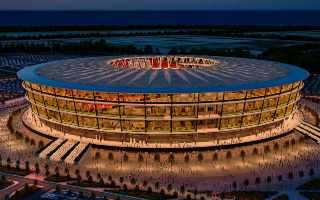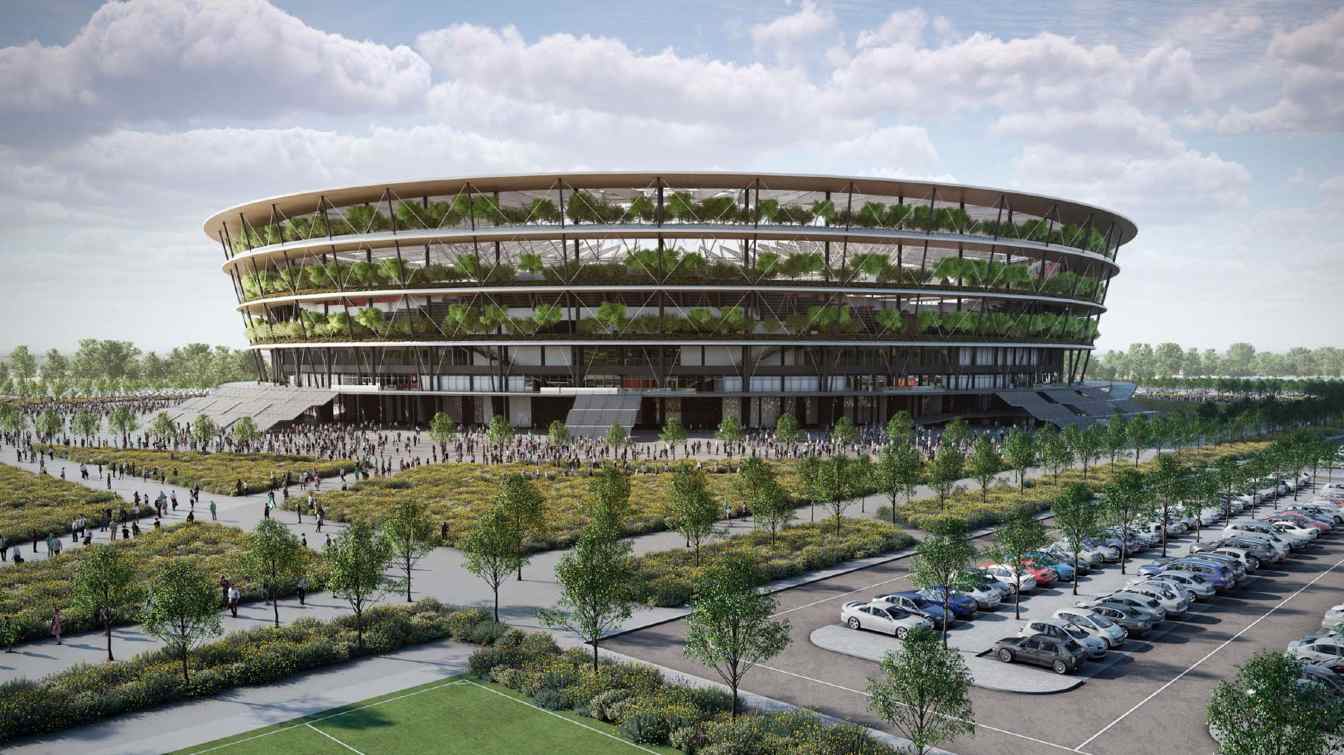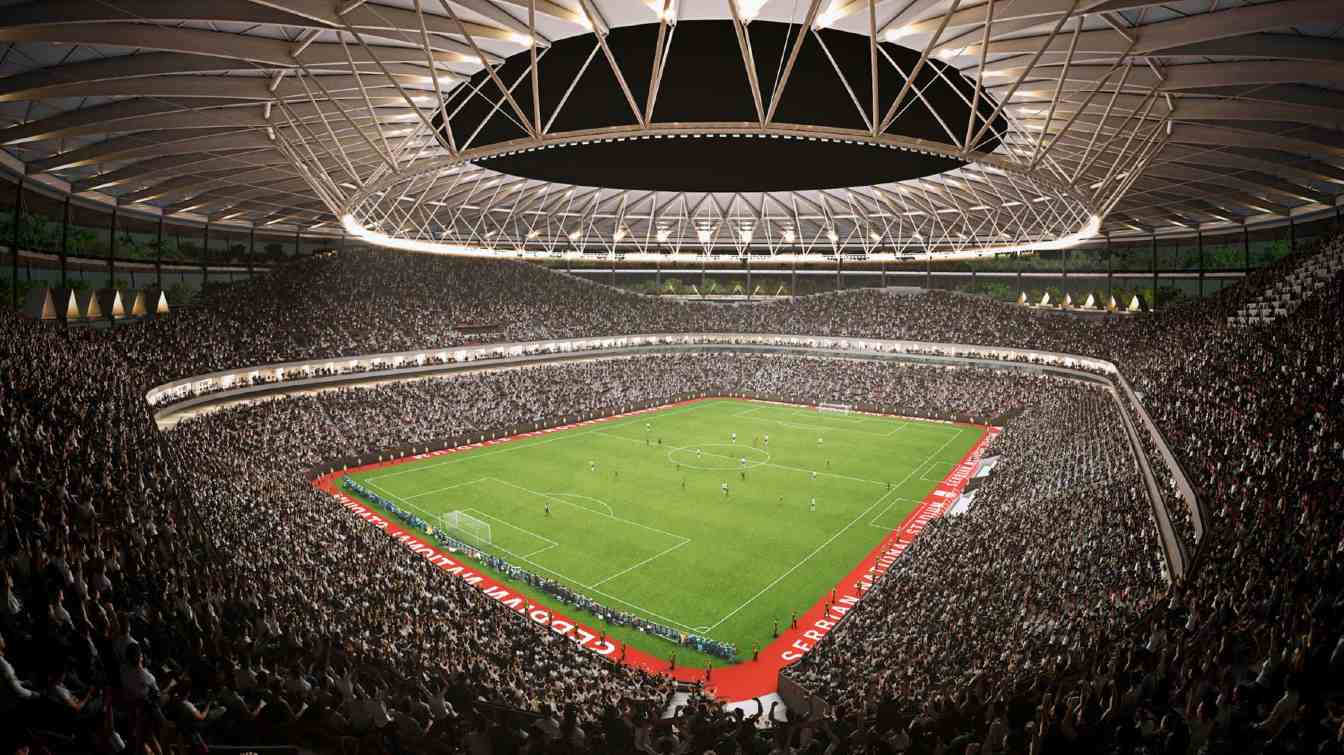Serbia: Controversy with national stadium under construction
source: StadiumDB.com; author: Jakub Ducki
 On Mat 1, 2024, the foundation stone laying ceremony for the new national stadium took place in Surčin, even though the feasibility study for the project has still not been completed. This situation raises a lot of controversy and criticism, especially in the context of investment logic.
On Mat 1, 2024, the foundation stone laying ceremony for the new national stadium took place in Surčin, even though the feasibility study for the project has still not been completed. This situation raises a lot of controversy and criticism, especially in the context of investment logic.
Advertisement
Everything upside down or just Serbia?
To the west of Belgrade, the construction of new national stadium has started. However, as it turns out, the relevant documents, which in the investment process should have been produced at the very beginning, have not been delivered. A feasibility study, which is missing, is an analysis of the technical, financial, market and risk assessment of a project before construction work begins.
In the case of the national stadium in Serbia, its absence means the risk of an unprofitable investment, as Mahmud Bušatlija, development and investment advisor, points out. Bušatlija notes that starting work before a comprehensive analysis has been prepared is a mistake that could result in reckless spending of public funds.
Serbia's Ministry of Finance did not announce the tender for the feasibility study until February 2024, which means that construction work started without the necessary analysis and plans. KPMG, the company that won the tender to prepare the study, has only 54 days to complete it. This timetable raises concerns that the document will be a mere formality and not a real feasibility study of the project.
 © Fenwick Iribarren Architects
© Fenwick Iribarren Architects
All about money?
Nemanja Nenadić, programme director of Transparency Serbia, points to the lack of transparency and ambiguity surrounding the financing and planning of the stadium. Despite earlier announcements, the feasibility study, which should be the foundation of the investment decision, is still not publicly available, raising questions about the real motives and objectives of the project.
The cost of building the stadium, which is in excess of hundreds of millions of euros, raises doubts about its ability to be paid back, even assuming regular sporting events. Bušatlija stresses that with current financial projections, the investment is extremely risky and unlikely to pay off in the near future.
The start of its construction several years ago was delayed by the coronavirus pandemic, and in recent years estimates of the final cost have risen dramatically. Initially the amount was around €250 million, in January this year it was €540 million, and by mid-2024 the amount is already €910 million. You can read more about the finances and the visualisation of the stadium-garden in Belgrade in our previous article.
 © Fenwick Iribarren Architects
© Fenwick Iribarren Architects
Advertisement
 StadiumDB
StadiumDB